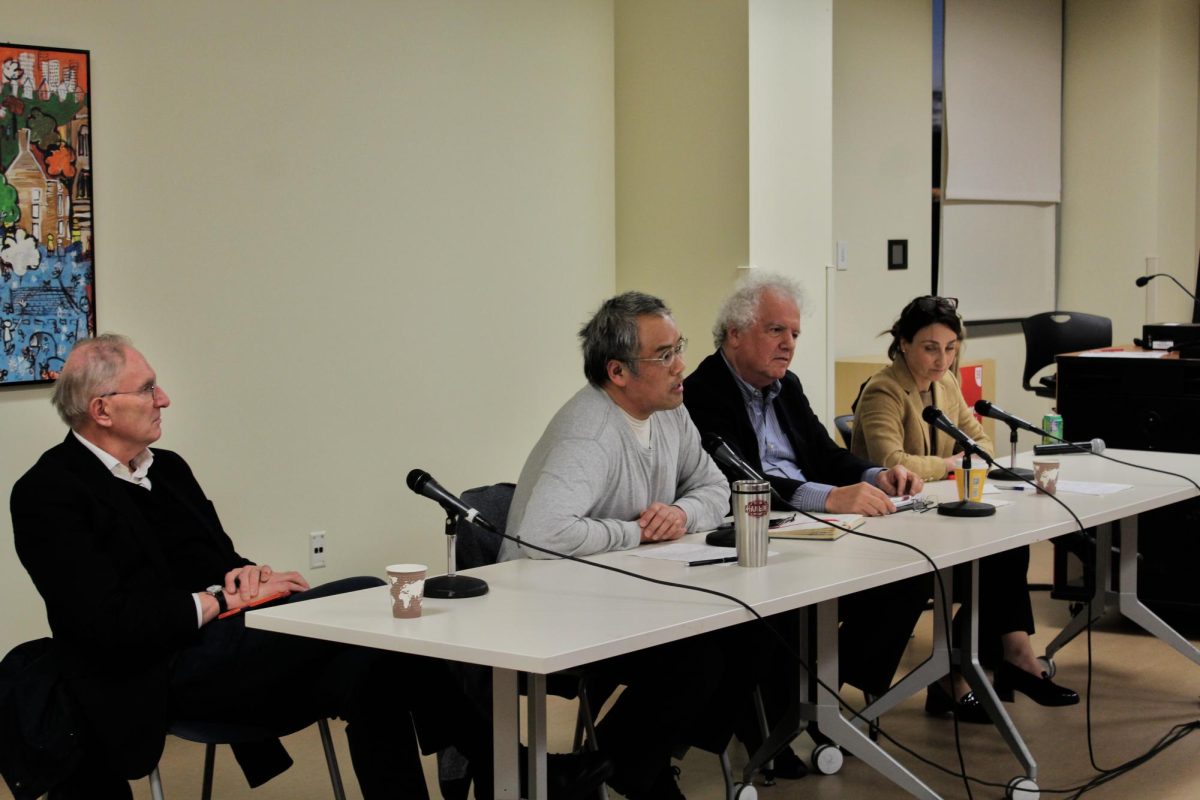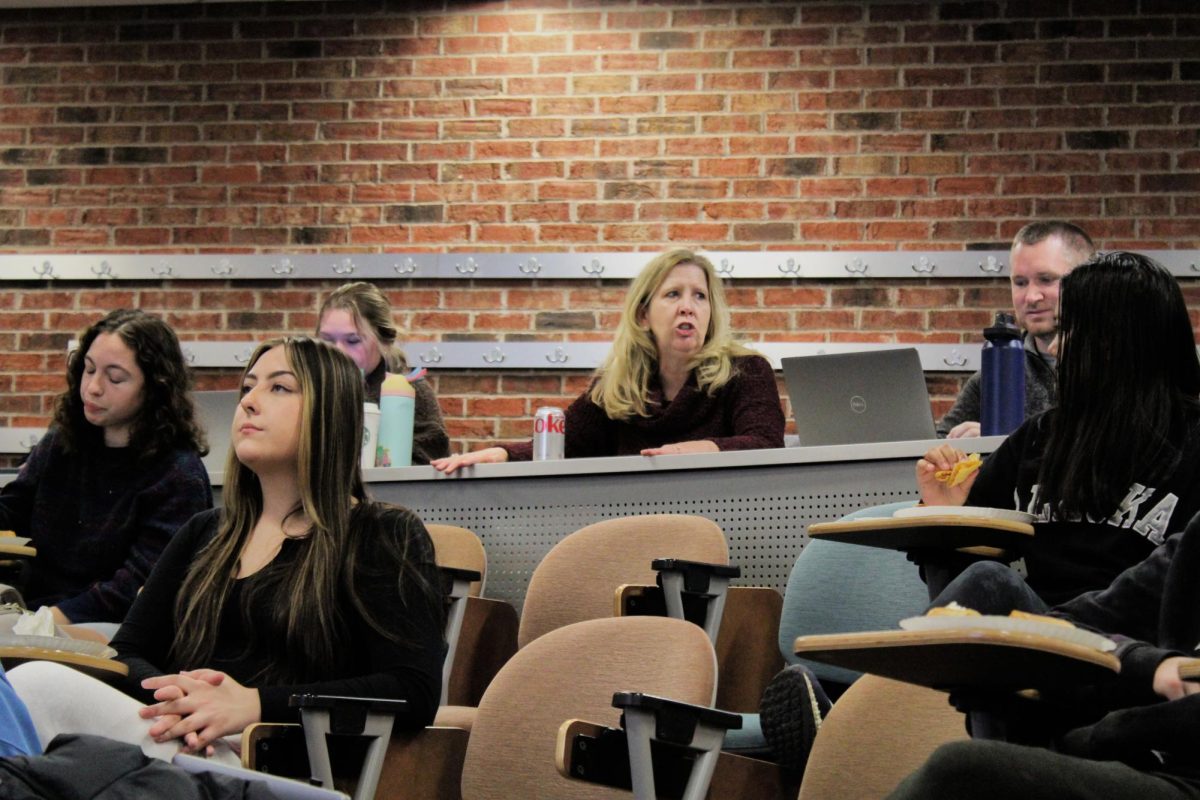In an effort to offer insight on the results of the election, Hamline’s political science department hosted a post-election panel discussion to discuss the causes and future implications of President-Elect Donald Trump’s victory in the 2024 presidential election. The panel consisted of current political science professors, David Schultz, Zhenquig Zhang and Binnur Ozkececi-Taner and former political science professor Joseph Peschek. The department held a similar discussion following the 2016 and 2020 elections as well.
Political science professor Alina Oxendine led the panel discussion and provided some insight into the gender politics of the election. Schultz and Peschek gave a domestic analysis while Ozkececi-Taner and Zhang focused on an international perspective. The goal of this discussion was to help people understand Trump’s victory.
“[We are] helping people to make sense of the results and then put it into a broader context and like I mentioned just answer the questions that people have specifically here at Hamline,” Oxendine said.
Going into this election, the economy was a major point of contention: many Americans were concerned with the price of gas and groceries. Oxendine believes this played a role in how Americans perceived how qualified Vice President Kamala Harris was to be president.
“Experiments, it’s kind of interesting, show that female participants are less successful when participants view the U.S. economy as weak or even if they are encouraged to think about economic anxiety, they are more likely to turn towards male candidates and prefer them,” Oxendine said during the panel.
While gender played a role, all the professors acknowledged that the election results were caused by a complex web of issues. Pescheck and Schultz believed Harris’ loss was not just a reflection of her but of the Democratic party as a whole.
“It all portended a really tough road for the Democrats in 2024, whether or not the candidate was Joe Biden, Kamala Harris or somebody else,” Peschek said during the panel.
Schultz explained that Trump’s victory was not a display of just the past several campaign months, but a reflection of a greater shift in the Democratic party and Americans’ perception of Democrats’ goals away from the working class.
“It was close, but the Democrats lost every close race, every close Senate race, every close House race. And they did so because of what I’m going to call a series of choices that the Democrats have made over a 40-year period that finally came home to roost,” Schultz said in the panel.
The discussion did not stay centered around how the election turned out the way it did, Zhang and Ozkececi-Taner explained the effect the results will have on the United States’ relationships with other countries. In Europe, leaders are cautious about how Trump will continue his international policies in his second term.
“The European Union member states are not very happy with the election of Trump, both German and French leaders have come up with statements that they congratulate President Trump for his election, but still they are concerned about the trans-Atlantic relations. The trans-Atlantic relations were very volatile through the first term of President Trump,” Ozkececi-Taner said during the panel.
Nevertheless, not all countries seem wary of the election results. Ozkececi-Taner explained that Israeli Prime Minister Benjamin Netanyahu and other Israeli leaders were the first to congratulate Trump on his victory. Zhang expressed some worry about which countries were expressing joy over the election results.
“This is something that I’m pretty sure Xi Jinping [President of the People’s Republic of China] and Putin [President of Russia] are celebrating but this is something we in the US need to think about as we proceed into the future,” Zhang said in the panel.
As the country moves into the future and into a second Trump term there are many mixed emotions. Oxendine hopes by offering this discussion, people are able to move into this future with a better understanding of the United States’ political position.
“I think it helps to kind of put it all into a broader perspective. We will probably all talk about how it connects to research and political science so that offers kind of a different vantage point,” Oxendine said.
Making sense of the election results
Anabel Bradley, News Reporter
November 18, 2024
Categories:
Story continues below advertisement
0
More to Discover











